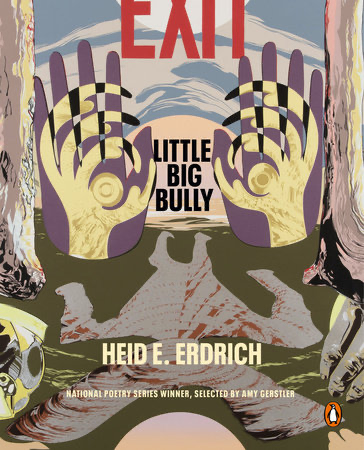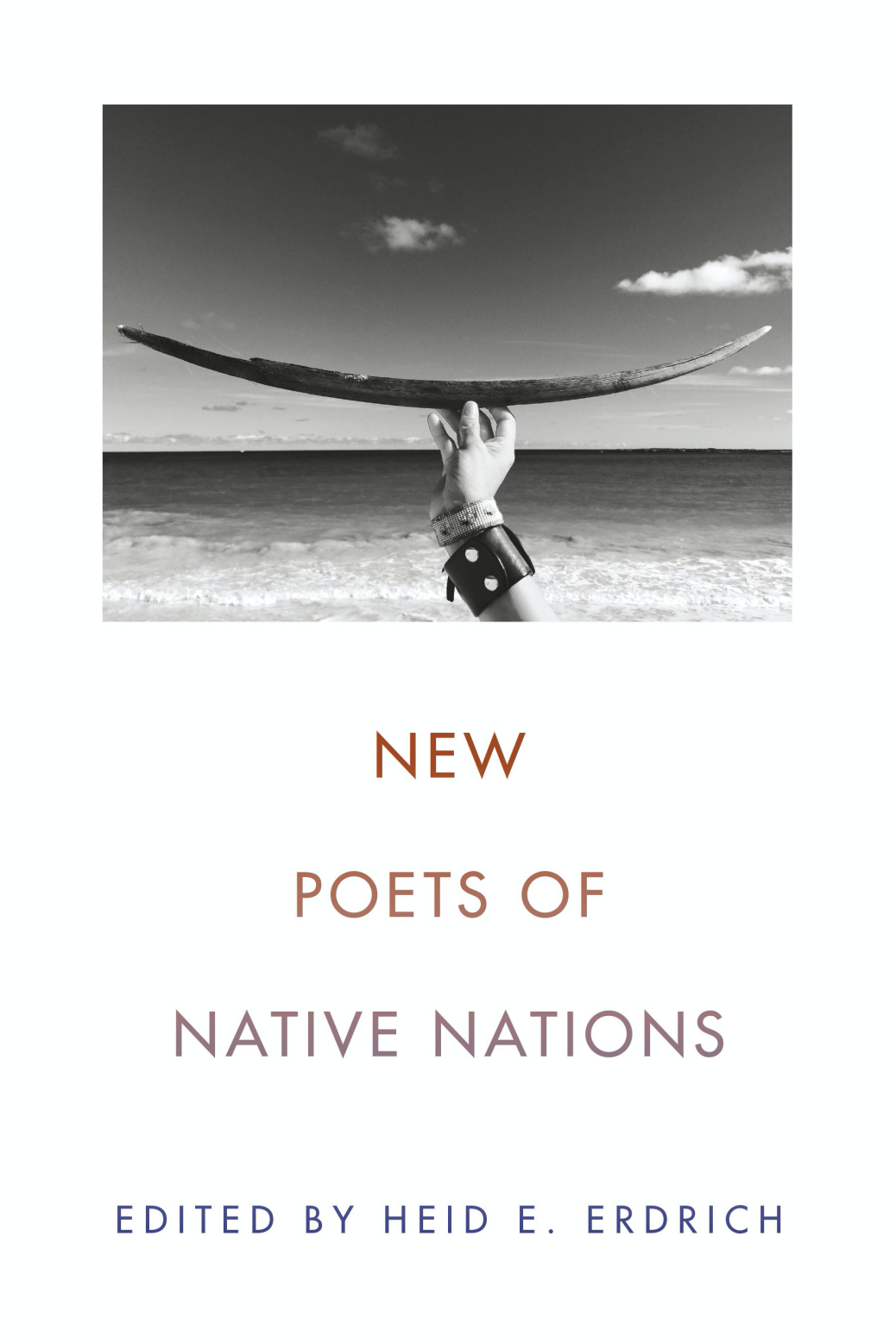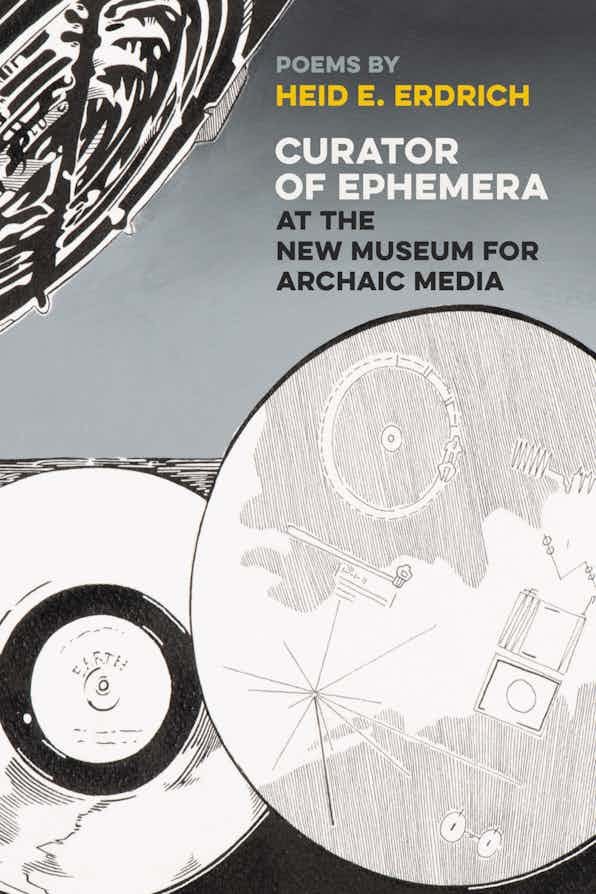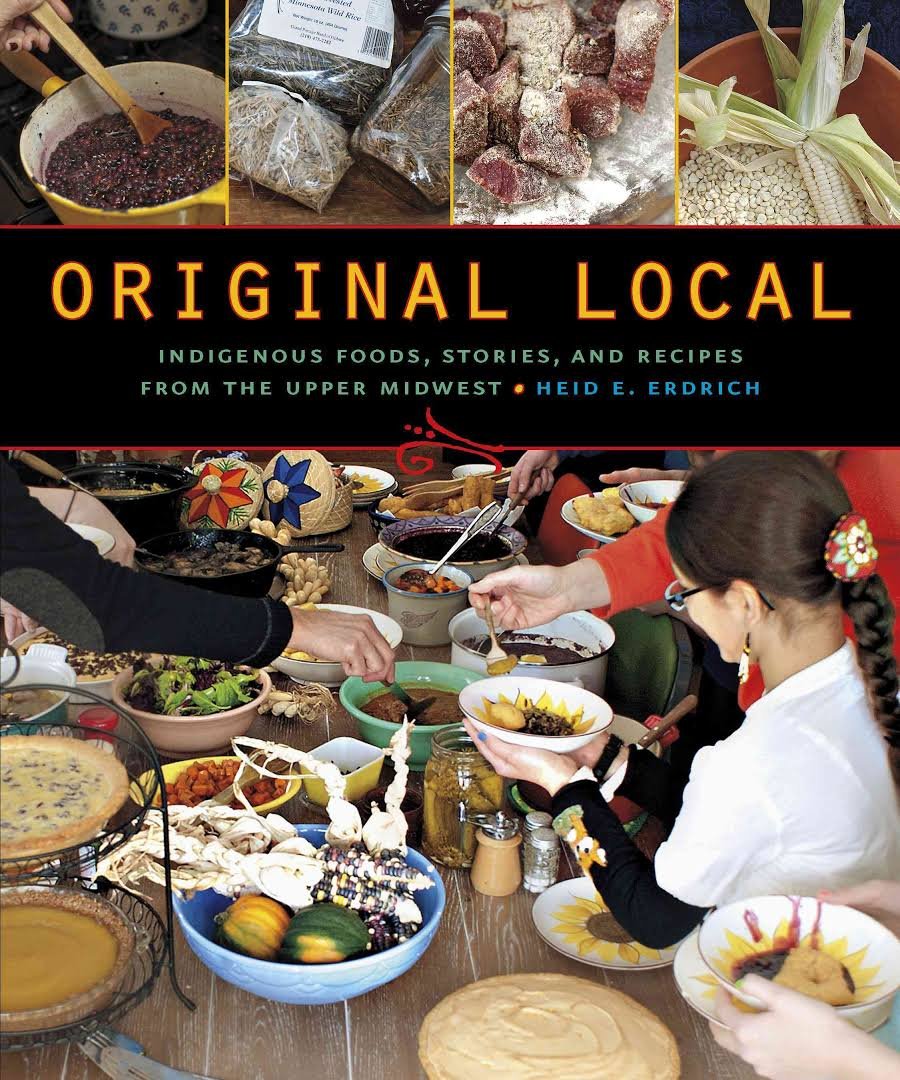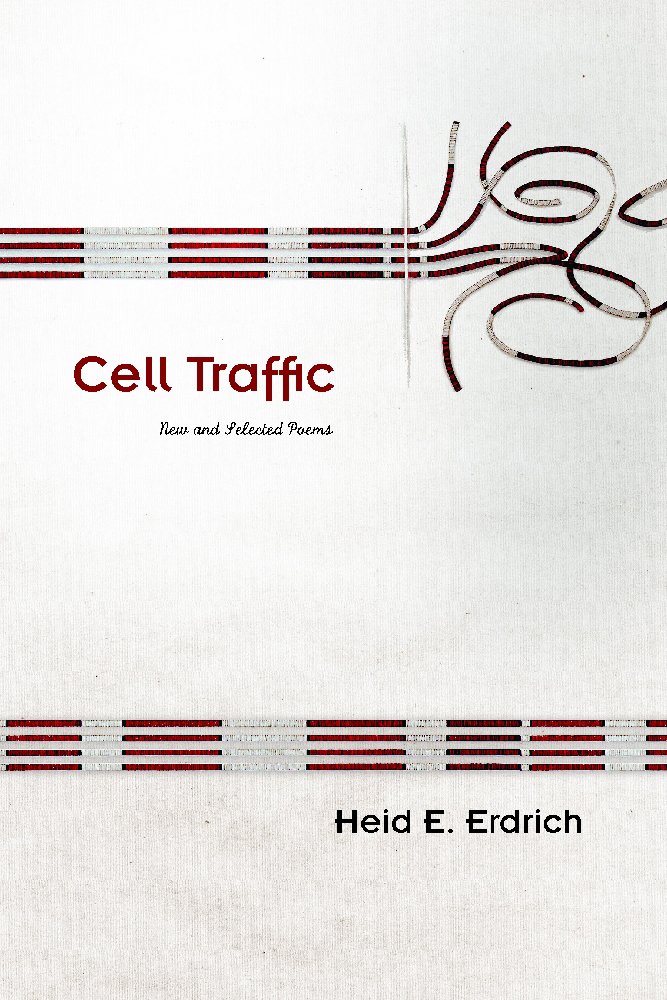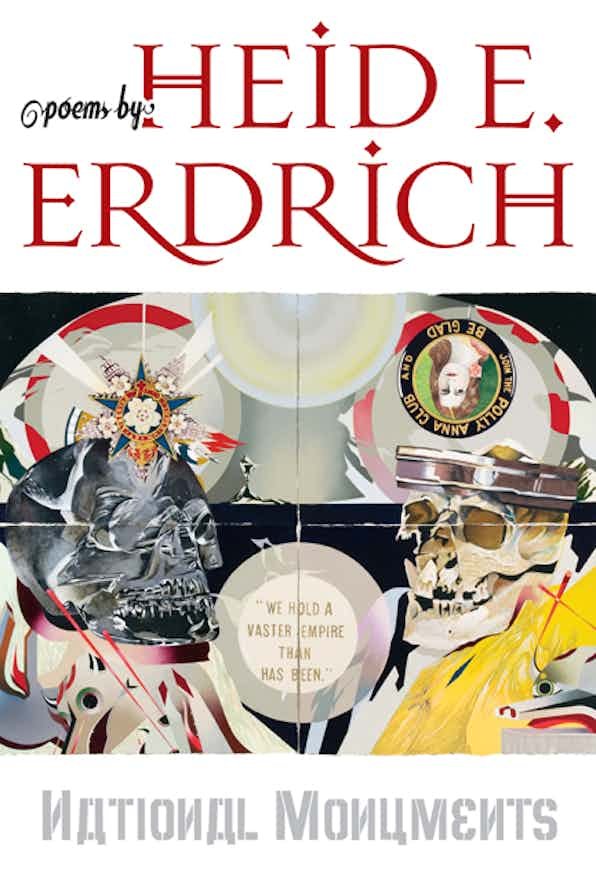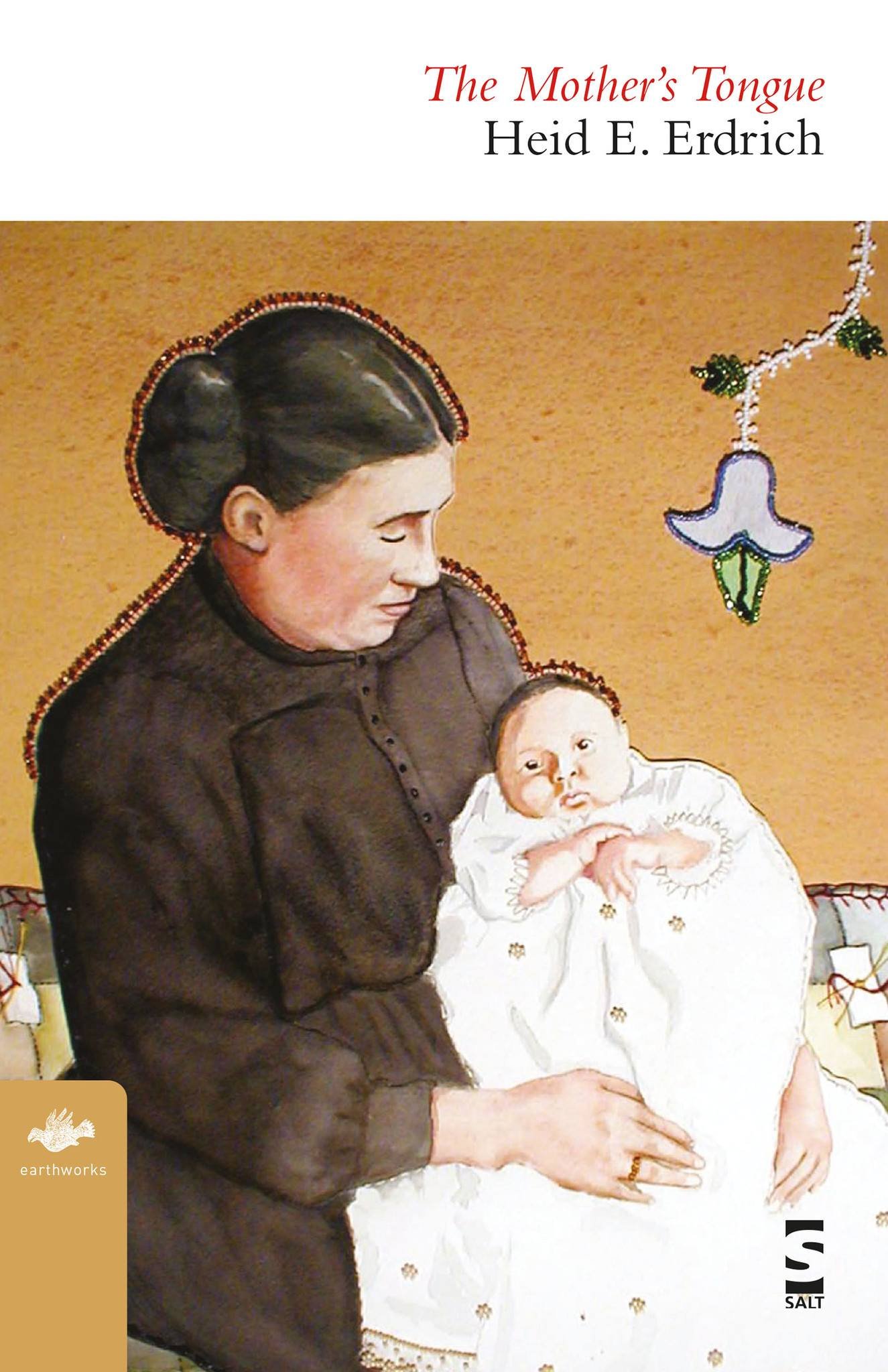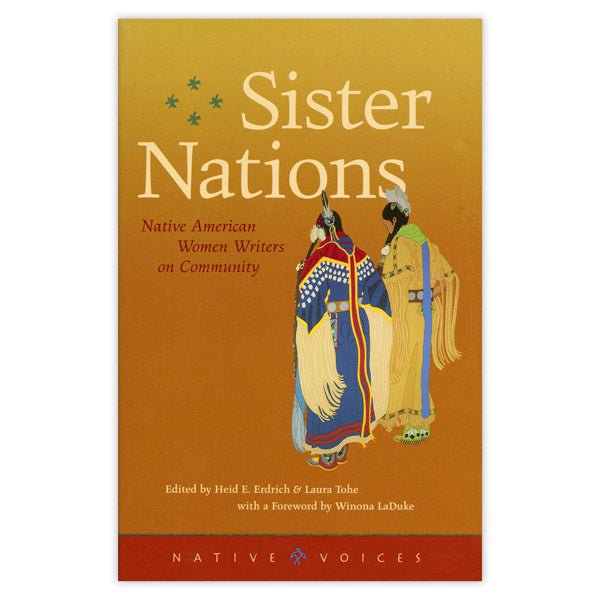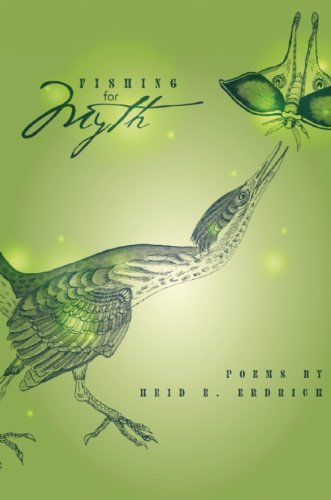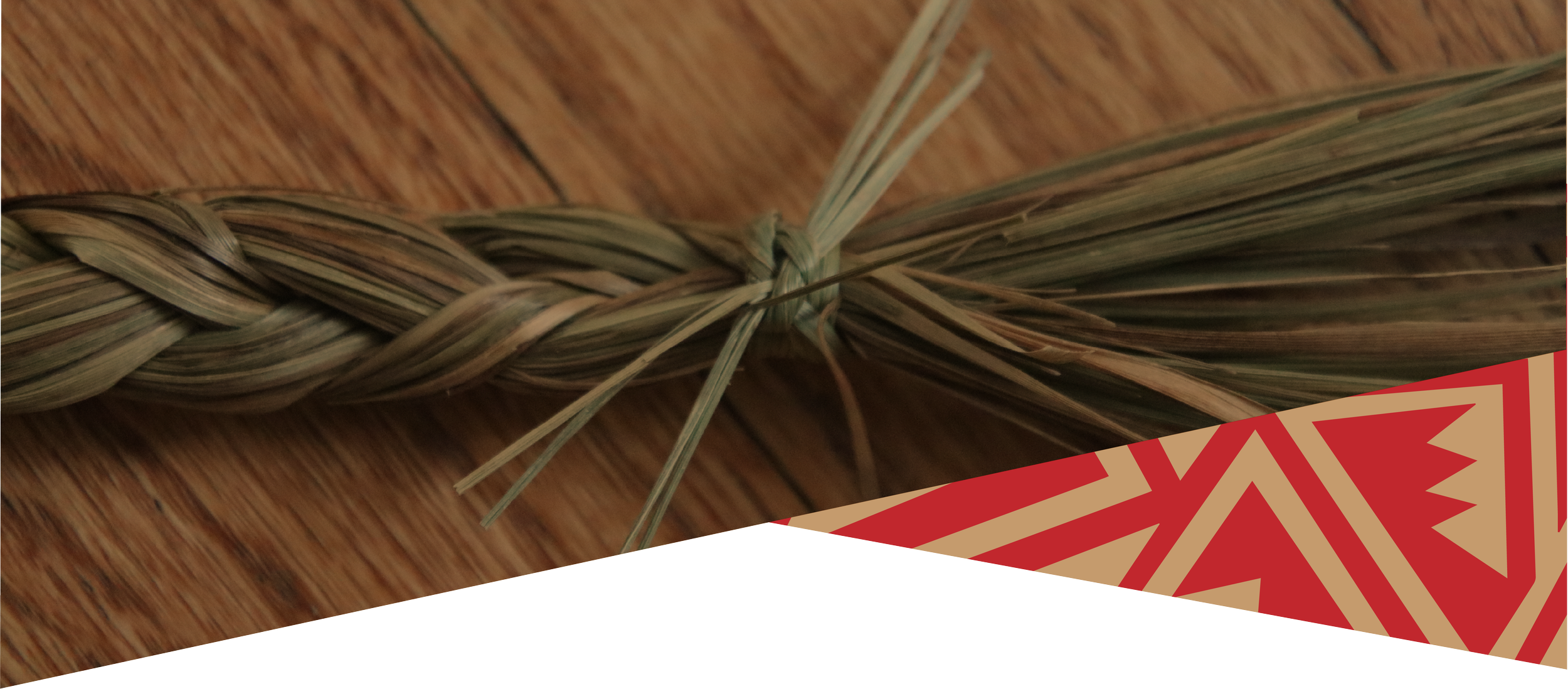
Heid E. Erdrich
Board Member, Indigenous Nations Poets
Heid E. Erdrich (Ojibwe) grew up in Wahpeton North Dakota and is Ojibwe enrolled at Turtle Mountain. Heid teaches, edits, and curates visual arts exhibitions with a focus on Native American art. Many of her seven poetry collections contain works created for collaborations with visual artists. Her poetry collection Little Big Bully, 2020, won a National Poetry Series award and the Bobbitt prize from The Library of Congress. Heid edited the 2018 anthology New Poets of Native Nations which won an American Book Award from the Before Columbus Foundation. She is the 2024 Minneapolis Poet Laureate.
Publications
Little Big Bully
Genre: Poetry
Publisher: Penguin Random House
Publication Date: 2020
Winner of the 2022 Rebekah Johnson Bobbitt National Prize for Poetry
In a new collection that is “a force of nature” (Amy Gerstler), renowned Native poet Heid E. Erdrich applies her rich inventive voice and fierce wit to the deforming effects of harassment and oppression.
Little Big Bully begins with a question asked of a collective and troubled we – how did we come to this? In answer, this book offers personal myth, American and Native American contexts, and allegories driven by women’s resistance to narcissists, stalkers, and harassers. These poems are immediate, personal, political, cultural, even futuristic object lessons. What is truth now? Who are we now? How do we find answers through the smoke of human destructiveness? The past for Indigenous people, ecosystem collapse from near-extinction of bison, and the present epidemic of missing and murdered Indigenous women underlie these poems. Here, survivors shout back at useless cautionary tales with their own courage and visions of future worlds made well.
New Poets of Native Nations
Genre: Poetry
Publisher: Graywolf Press
Publication Date: 2018
New Poets of Native Nations gathers poets of diverse ages, styles, languages, and tribal affiliations to present the extraordinary range and power of new Native poetry. Editor Heid E. Erdrich has selected twenty-one poets whose first books were published after the year 2000 to highlight the exciting works of poets coming up after Joy Harjo and Sherman Alexie. Collected here are poems of great breadth—long narratives, political outcries, experimental works, and traditional lyrics—and the result is an essential anthology of some of the best poets writing now.
Poets include Tacey M. Atsitty, Trevino L. Brings Plenty, Julian Talamantez Brolaski, Laura Da’, Natalie Diaz, Jennifer Elise Foerster, Eric Gansworth, Gordon Henry, Jr., Sy Hoahwah, LeAnne Howe, Layli Long Soldier, Janet McAdams, Brandy Nalani McDougall, Margaret Noodin, dg nanouk okpik, Craig Santos Perez, Tommy Pico, Cedar Sigo, M. L. Smoker, Gwen Westerman, Karenne Wood
Curator of Ephemera
At The New Museum For Archaic Media
Genre: Poetry
Publisher: Michigan State University Press
Publication Date: 2017
Heid E. Erdrich writes from the present into the future where human anxiety lives. Many of her poems engage ekphrasis around the visual work of contemporary artists who, like Erdrich, are Anishinaabe. Poems in this collection also curate unmountable exhibits in not-yet-existent museums devoted to the ephemera of communication and technology. A central trope is the mixtape, an ephemeral form that Erdrich explores in its role of carrying the romantic angst of American couples. These poems recognize how our love of technology and how the extraction industries on indigenous lands that technology requires threaten our future and obscure the realities of indigenous peoples who know what it is to survive apocalypse. Deeply eco-poetic poems extend beyond the page in poemeos, collaboratively made poem films accessible in the text through the new but already archaic use of QR codes. Collaborative poems highlighting lessons in Anishinaabemowin also broaden the context of Erdrich’s work. Despite how little communications technology has helped to bring people toward understanding one another, these poems speak to the keen human yearning to connect as they urge engagement of the image, the moment, the sensual, and the real.
Indigenous Foods, Stories, and Recipes from the Upper Midwest
Genre: Cooking
Publisher: Minnesota Historical Society Press
Publication Date: 2013
Local foods have garnered much attention in recent years, but the concept is hardly new: indigenous peoples have always made the most of nature’s gifts. Their menus were truly the “original local,” celebrated here in 135 home-tested recipes paired with stories from tribal activists, food researchers, families, and chefs.
A chapter devoted to wild rice makes clear the crucial role manoomin plays in Native cultures. Similar attention is lavished on the tallest of the Three Sisters: mandamin, or corn. The bounty of the region’s lakes and streams—walleye, whitefish, and more—inspire flavorful combinations and fierce protection of resources. Health concerns have encouraged Ojibwe, Dakota, and Lakota cooks to return to, and revise, recipes for bison, venison, and wild game. Sections on vegetables and beans, herbs and tea, and maple and berries offer insight from a broad representation of regional tribes, including Ho-Chunk, Menominee, Potawatomi, and Mandan gardeners and harvesters. The innovative recipes collected here—from Maple Baked Cranberry Beans to Three Sisters Salsa, from Manoomin Lasagna to Black and Blue Bison Stew—will inspire home cooks not only to make better use of the foods all around them but also to honor the storied heritage they represent.
Cell Traffic
Genre: Poetry
Publisher: University of Arizona Press
Publication Date: 2012
Cell Traffic presents new poems and uncollected prose poetry along with selected work from award-winning poet Heid Erdrich's three previous poetry collections. Erdrich's new work reflects her continuing concerns with the tensions between science and tradition, between spirit and body. She finds surprising common ground while exploring indigenous experience in multifaceted ways: personal, familial, biological, and cultural. The title, Cell Traffic, suggests motion and Erdrich considers multiple movements-cellular transfer, the traffic of DNA through body parts and bones, "migration" through procreation, and the larger "movements" of indigenousness and ancestral inheritance. Erdrich's wry sensibility, sly wit, and keenly insightful mind have earned her a loyal following. Her point of view is always slightly off center, and this lends a particular freshness to her poetry. The debunking and debating of the science of origins is one of Erdrich's focal subjects. In this collection, she turns her observational eye to the search for a genetic mother of humanity, forensic anthropology's quest for the oldest known bones, and online offers of genetic testing. But her interests are not limited to science. She freely admits popular culture into her purview as well, referencing sci-fi television series and Internet pop-up ads.
National Monuments
Genre: Poetry
Publisher: Michigan State University Press
Publication Date: 2008
Many of the poems in National Monuments explore bodies, particularly the bodies of indigenous women worldwide, as monuments—in life, in photos, in graves, in traveling exhibitions, and in plastic representations at the airport. Erdrich sometimes imagines what ancient bones would say if they could speak. Her poems remind us that we make monuments out of what remains—monuments are actually our own imaginings of the meaning or significance of things that are, in themselves, silent.
As Erdrich moves from the expectedly "poetic" to the voice of a newspaper headline or popular culture, we are jarred into wondering how we make our own meanings when the present is so immediately confronted by the past (or vice versa). The language of the scientists that Erdrich sometimes quotes in epigraphs seems reductive in comparison to the richness of tone and meaning that these poems—filled with puns, allusions, and wordplay—provide.
Erdrich's poetry is literary in the best sense of the word, infused with an awareness of the poetic canon. Her revisions of and replies to poems by William Carlos Williams, Robert Frost, and others offer an indigenous perspective quite different from the monuments of American literature they address.
The Mother’s Tongue
Genre: Poetry
Publisher: Salt Publishing
Publication Date: 2005
Shortlisted for The Minnesota Book Awards 2006.
Poems in The Mother’s Tongue move in images of the living world that include plants and creatures both native and non-native to American landscapes. These poems move via persona and personal lyric through expressions of ambivalence about choosing the life of the body – of womanhood and motherhood – through the strange realm of pregnancy into the netherworld of the post-partum period and out into the world again, into the enlarged world, the world at war, the world of work and words. Finally these poems move to enter the world of women as transformed within the love of language – of recovered Ojibwe language and English renewed as first language in the mouths of infants. These are poems that urge women to discover the power of their own tongues as they teach speech – the sweet, salty, sour and bitter desires – the taste on the mother’s tongue.
Sister Nations
Native American Women Writers on Community
Genre: Poetry
Publisher: Salt Publishing
Publication Date: 2002
This anthology of fiction, prose, and poetry celebrates the rich diversity of writing by Native American women today. Editors Heid E. Erdrich and Laura Tohe have gathered stories from across the nation that celebrate, record, and explore Native American women's roles in community. The result is a rich tapestry that contains work by established writers along with emerging and first-time authors. Contributors include Louise Erdrich, Joy Harjo, Diane Glancy, Elizabeth Cook-Lynn, Allison Hedge Coke, LeAnne Howe, Roberta Hill, Kim Blaeser, Linda LeGarde Grover, with a foreword by Winona LaDuke.
The writings included range from the personal to the political, from notions of romantic love to the realities of marriage, from finding a place in modern society to incorporating tradition in daily life. Whether it's Louise Erdrich's heartbreaking story "The Shawl," Diane Glancy's tightly distilled poems, or Joy Harjo's elegant and fanciful "How to Get to Planet Venus," all of these works explore both what it means to be a woman and how those realities are complicated by the Native American experience.
The editors have divided these lively and thought-provoking pieces into four sections: "Changing Women," which deals with the stages of a woman's life, awareness of female ancestors, and women's traditions of healing and making art; "Strong Hearts," which shows Indian women enduring with love, defending with fierce judgment, and reaching out across history to protect the people; "New Age Pocahontas," which reveals the humor and complexity of stereotypes and simplified images of Native American women; and "In the Arms of the Skies," which explores the ways in which typical notions about romantic love and marriage are put to the test.
Sister Nations also includes full biographies of all the contributors, commentary from many of the authors on their work, and a bibliography of relevant publications.
Fishing for Myth
Genre: Poetry
Publisher: New Rivers Press
Publication Date: 1997
Poetry. Native American Studies. "In this delightful collection, Heid E. Erdrich reveals the mythic encounter beneath our daily lives. We see in a new light the boyfriend, the childhood game, the losses we endured, the dog we longed for, all given us again with rich and moving language. This collection comes into the heart like the first snow of winter and the blazing green of spring buds. It makes you take stock of your life and feel glad for it all."—Roberta Hill, author of Star Quilt






